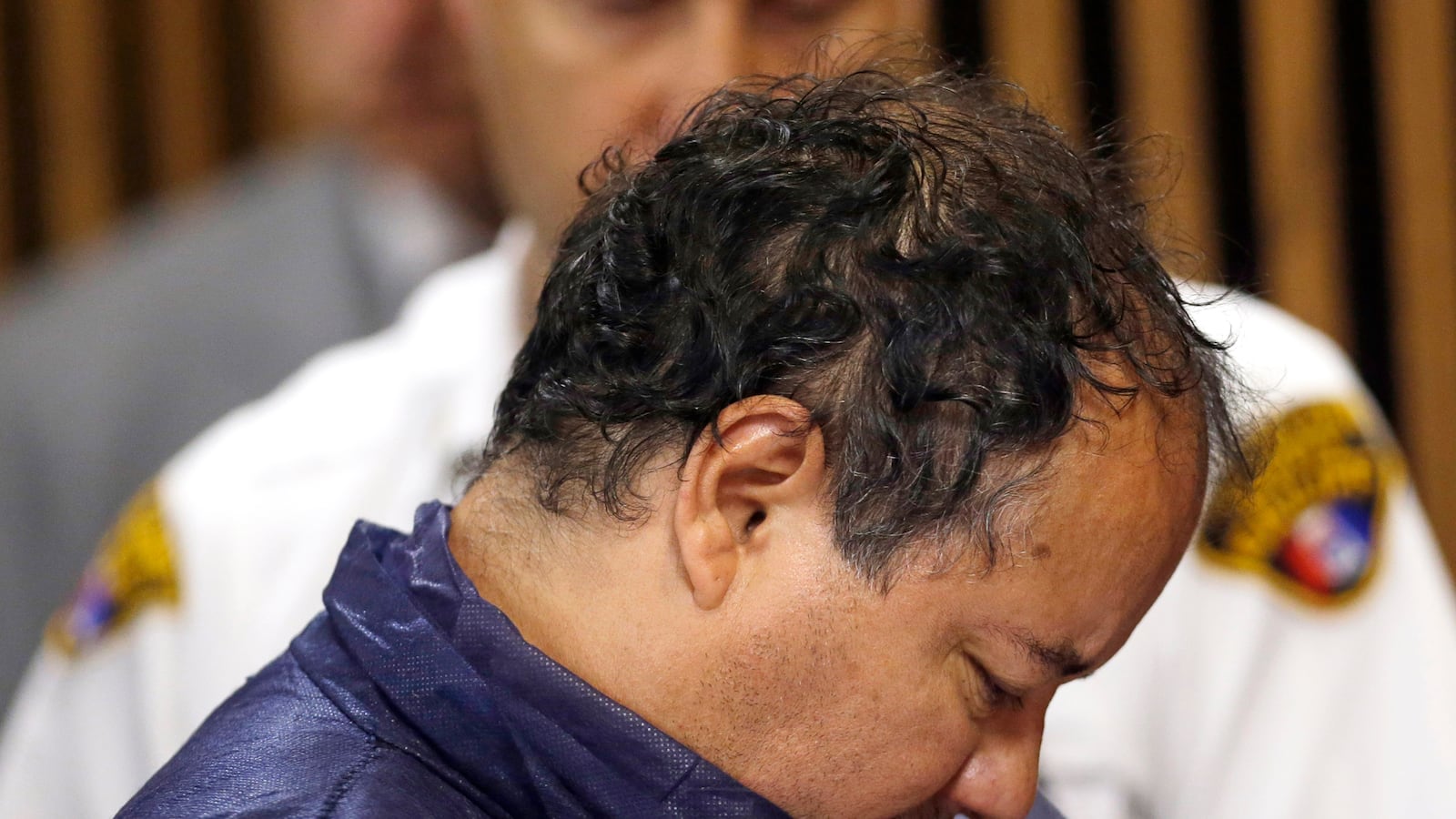Has the prosecutor in the Ariel Castro case gone too far?
Anti-death-penalty advocates are fuming over the fact that Cuyahoga County prosecutor Tim McGinty is preparing to present aggravated-murder charges to the grand jury against Ariel Castro in his upcoming kidnapping and torture case. At least one of the victims, Michelle Knight, has stated that she suffered multiple forced pregnancy terminations while being held in captivity for over a decade, thus opening the alleged perpetrator up to death-penalty sentencing, at least according to McGinty.

Nonetheless, some are accusing the prosecutor of demonstrating a disregard for the ongoing and long-term welfare of the victims simply because he wants to grandstand and play to public outrage in the perhaps the highest-profile case in Ohio crime history.
Once Castro waived his Miranda rights and spoke openly, freely, and candidly to investigators, the case immediately became as much a media trial as a legal matter. Sources close to the investigation report that within the first few minutes of questioning, the alleged perpetrator admitted to enough heinous crimes to easily put him away for 10 lifetimes. And with three victims set to testify against him if needed, the legal case for the kidnapping and rape counts is a slam dunk. So why throw in the more contentious (and difficult to prove) capital murder charges? At what cost to the victims?
Terry Collins, the former director of the Ohio Department of Rehabilitation and Corrections, is a 32-year corrections veteran who oversaw 33 executions during his career. He says his biggest concern is the impact the decision to seek the death penalty will have on the lives of the victims. (Disclosure: since his retirement in 2010, Collins and I have made a number of formal presentations together around Ohio to correctional professionals and prisoners inside state institutions.)
“Death-penalty cases in Ohio usually drag on for 20 years or more before the execution is carried out,” says Collins, “with appeals filed on top of appeals, all of which call for additional hearings, at which the victims are often called on to testify all over again, thus reliving their trauma year in and year out on the witness stand. And even when they are not needed to testify, the case will be screaming at them from newspaper headlines. For them, there really will be no end to it, no closure. They won’t be able to escape it. And it isn’t fair to repeatedly put them though all of this hell simply to satisfy our own blood lust. They deserve to be able to put this behind themselves as soon as possible, or they’re going to be dying little by little right along with the monster the prosecutor is attempting to kill.”
And of course there’s the additional cost in terms of wasted tax dollars.
A 1999 study conducted by a research group at the University of Vermont stated, “Repeated studies over the years have shown that prosecuting death-penalty cases can be two to eight times as expensive as sentencing someone to life in prison and maintaining them there without the possibility of parole. In some instances, the cost of death-penalty cases can top $3 million.” Forget the death penalty, detractors say, and spend all of that extra money to hire additional police officers, which, in theory at least, would reduce crime.
To be sure, support for the death penalty—in the case of Castro and in general—is relatively strong in Ohio, a fact that has likely influenced McGinty’s decisions. Paradoxically, the previous governor of Ohio, Democrat Ted Strickland, consistently supported the death penalty and rarely stopped an execution or commuted a sentence, while Republican Gov. John Kasich, who has been in office since 2010, has granted four commutations in capital cases, citing the need for fair trials.
“The prosecutor is just doing what the people are demanding,” says Craig Jones, a Cleveland native. “Everyone I talk to about this case is for this guy being executed. The only thing they are upset about is that it takes so many years. We need to figure out how to make punishment swifter. That’s how we can save money, cut down on all of those appeals.”
Still, local defense attorneys, who would not speak on the record for fear of retribution by the hard-driving McGinty against current and future clients, accuse the prosecutor, who took office last fall, of using the power of his office to go overboard to enhance his own reputation and tough-guy image.
“He knows that with no fetuses, and no exact time when they were aborted, the murder case will be very tough to prove, but he doesn’t care,” said one lawyer. “All he’s concerned about is keeping the limelight on himself for perhaps decades to come. This isn’t about justice, and it’s all very disgusting to watch.”
Attempts to reach McGinty's office for comment were not returned.
This isn’t the first time McGinty has pulled a headline-grabbing stunt in the short period he’s been in office. Earlier this year, he kicked federal prosecutors in the shins by seeking to revive already adjudicated cases in a six-year country corruption probe that resulted in 62 individuals either pleading or being found guilty in federal court.
“It's surprising to me that McGinty in these early stages [of his tenure in office] would do something that would undermine his capacity to work cooperatively with the United States Attorney's Office and federal law enforcement authorities,” says Geoffrey S. Mearns, a former federal prosecutor who worked on the Oklahoma City bombing case and who currently is the president of Northern Kentucky University. He knows McGinty well since he also served as provost at Cleveland State University, as well as dean and professor of CSU's Cleveland-Marshall College of Law. “I guess what I would say is it seems unjustified and ill advised.”
Collins echoed the term “ill advised” by stating that playing to current public sentiment is never good or proper public policy or a fair way to use the power of the prosecutor’s office. “Let’s face it, if just one 10th of the charges already filed against [Castro] prove true, there’s simply no way he’s ever getting out of prison. The judge will run the sentences consecutively. But the public just loves to get outraged and demand tougher and tougher sanctions, in addition to worse and worse treatment of the incarcerated, without any thought of consequences.”
Indeed, a largely overlooked fact of mass incarceration American style is the impact our prison policies have on those tasked with working in our nation’s penal institutions on a daily basis. Prison guards already have among the highest divorce rates of any job or profession in the country.
Another defense attorney stated, “I too want a safe society. I want dangerous monsters off the street and locked away where they can’t hurt anyone. One of those young women could have been my daughter, I get that. But when people sit comfortably at home in their easy chairs yelling, ‘Lock ’em up and throw away the key,’ when they scream that we should make prisons hellholes, I want to scream back, ‘Why don’t you get up off your lazy butt and go in there and show us how to do it?’” We’re great in this country for having someone else do our dirty work, and guys like McGinty fan the flames of this kind of Neanderthal thinking by bringing outrageous charges that he knows are not in the public interest or the interest of the victims. And he’s doing it simply for self-aggrandizement.”






